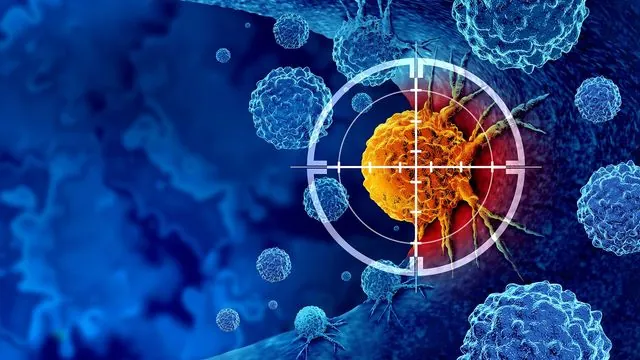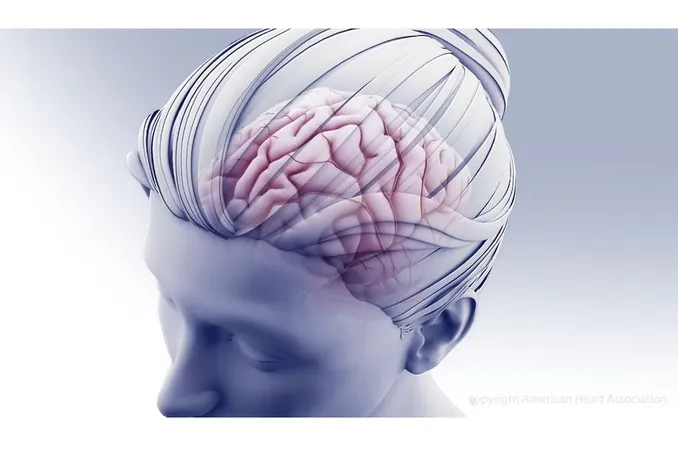
Groundbreaking Cancer-Killing Virus May Revolutionize Treatment for Aggressive Brain Tumors!
2024-11-11
Author: Daniel
Groundbreaking Cancer-Killing Virus May Revolutionize Treatment for Aggressive Brain Tumors!
In a remarkable scientific breakthrough, a collaborative research team from Queen Mary University of London, the Chinese Academy of Sciences, and Capital Medical University in Beijing has unveiled promising results from a pioneering virus treatment targeting glioblastoma — the deadliest form of brain cancer. Testing the innovative therapy on just eight patients, results have been so encouraging that they are now gearing up for more extensive Phase II clinical trials.
Current Challenges in Glioblastoma Treatment
Glioblastoma remains a formidable opponent in the realm of oncology, with most patients facing a grim prognosis of less than 14 months post-diagnosis. Current treatment options have proven largely ineffective, leading to frequent tumor recurrences. Researchers are now pinning their hopes on oncolytic viruses — a class of viruses designed specifically to invade and eliminate cancer cells while sparing healthy tissue.
Innovative Approach: Ad-TD-nsIL12
Professor Yaohe Wang, a co-lead author of the study and the mastermind behind the engineering of the virus, shared insights on the challenges of existing oncolytic viruses. “Most of them can be either ineffective at lower doses or too toxic at higher doses. Our goal was to enhance effectiveness without inflicting harm," he explained.
In this Phase I, dose-escalation trial, the innovative virus, named Ad-TD-nsIL12, was administered in three progressively increased doses to eight individuals whose glioblastomas had recurred post-surgery. The findings were encouraging: the treatment was deemed safe below a specified maximum dose, with one patient achieving complete remission and another showing signs of a partial response.
A Game-Changing Treatment?
During a recent visit to Beijing, Professor Wang met the patient whose tumor vanished entirely, an emotional encounter for both parties. “Shaking his hand and receiving his heartfelt thanks was a profound moment for me, underscoring the potential of this therapy,” he shared, reiterating the urgency to advance the treatment further.
The unique design of Ad-TD-nsIL12 is the key to its effectiveness. It is a genetically modified adenovirus engineered to produce a safer, modified version of interleukin-12 (IL-12), a powerful protein known to boost immune response against tumors. While IL-12 is effective, its unmodified form has shown toxicity; thus, the team's innovative approach allows its release to be confined to the tumor area, mitigating the risk of systemic toxicity.
Combination Therapy Potential
Importantly, researchers believe Ad-TD-nsIL12 could be a game-changer not just on its own but also as part of a combination therapy alongside immunotherapy. “It’s like Yin and Yang,” Professor Wang elaborated. “This virus can amplify the good signals that entice the immune system to combat the tumor while pairing well with treatments that inhibit the tumor’s tricks to dodge immune attacks.”
Next Steps and Future Implications
With Phase II trials on the horizon, led by Professor Hongwei Zhang at Beijing Sanbo Hospital, the research team is poised to further evaluate the efficacy of this treatment in a broader cohort of glioblastoma patients. Furthermore, they are optimistic that this innovative approach could have implications for treating other cancer types as well.




 Brasil (PT)
Brasil (PT)
 Canada (EN)
Canada (EN)
 Chile (ES)
Chile (ES)
 España (ES)
España (ES)
 France (FR)
France (FR)
 Hong Kong (EN)
Hong Kong (EN)
 Italia (IT)
Italia (IT)
 日本 (JA)
日本 (JA)
 Magyarország (HU)
Magyarország (HU)
 Norge (NO)
Norge (NO)
 Polska (PL)
Polska (PL)
 Schweiz (DE)
Schweiz (DE)
 Singapore (EN)
Singapore (EN)
 Sverige (SV)
Sverige (SV)
 Suomi (FI)
Suomi (FI)
 Türkiye (TR)
Türkiye (TR)